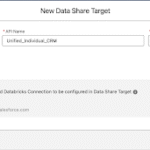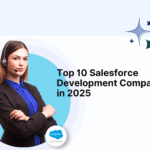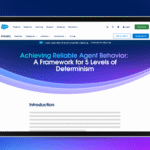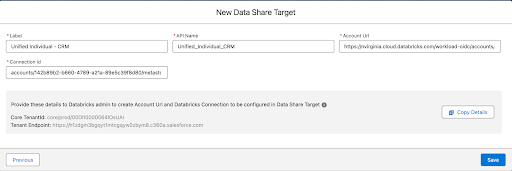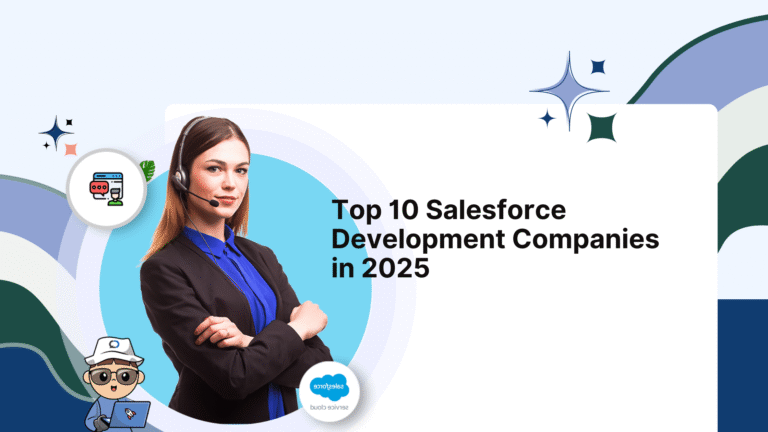Blast emails have been a go-to tool for marketers for years. They’re easy, cost-effective, and quick to get your message out to a large audience. But email marketing has come a long way since the days of batch-and-blast strategies. While blast email tools make it easy to send mass messages, the era of one-size-fits-all approaches is fading fast. Now, personalized email marketing is essential for creating meaningful connections and driving better engagement.
Today’s marketers need to connect with customers in a more impactful way. But with challenges around data quality, an inability to personalize, and a lack of intelligent segmentation & automation processes, it’s time to rethink your approach and use AI to take your email marketing to the next level.
What you’ll learn
What is personalized email marketing?
Personalized email marketing is the approach of tailoring messages to individual recipients based on their specific data and behaviors. About 74% of companies personalize their emails by using the recipient’s first name in the message or subject line, but true personalized email marketing goes beyond just names. Instead of sending the same email to everyone on your list, your messages are tailored based on customer insights like purchase history, browsing behavior, and engagement metrics. That makes your content more relevant and engaging, so each email feels like it was written specifically for that reader.
Why “batch and blast” email marketing doesn’t work anymore
The problem with ‘batch and blast’ email marketing, which involves sending the same generic message to a large group of recipients, is that it often fails to resonate with audiences. Customers today expect more from their inboxes. They want content that’s relevant and timely, not just another generic email. In fact, 73% of customers expect better personalization as technology advances.
While it’s technically possible to achieve some personalization with blast email systems, the process is so manual and time-consuming that it’s often not worth the effort. Creating deeply personalized campaigns with those systems requires significant manual data analysis, segmentation, and content customization for every email and campaign. So marketers end up stuck in a cycle of sending out generic blast emails that do little to engage their audience.
Blast email marketing creates a number of issues for marketers:
- Irrelevance: When emails aren’t tailored to individual preferences, customers are likely to see them as irrelevant and annoying.
- Low Engagement: Generic emails often result in lower open and click-through rates because they fail to grab the recipient’s attention & interest.
- Increased Unsubscribes: Irrelevant messaging can frustrate recipients, leading to higher unsubscribe rates.
- Missed Opportunities: Without deep personalization, the chance to nurture leads and convert them into loyal customers is missed.
Do personalized emails work better? Absolutely. Personalized emails significantly outperform their more generic counterparts. Studies show that personalized emails deliver 6x higher transaction rates, 29% higher open rates, and 41% higher click-through rates. The reason is simple: when customers feel known and valued, they are more likely to engage with your brand.
How generative AI helps with personalized email marketing
Generative AI is dramatically changing personalized email marketing by enabling marketers to quickly and automatically create highly customized and optimized content. It can analyze huge amounts of data to identify patterns and preferences – a task that could take hours without AI – enabling you to send the right message to the right person at the right time. That level of personalization was previously unimaginable with traditional blast email tools.
However, it’s crucial to be cautious about using customer data in public generative AI models, as it can pose significant privacy risks. The Einstein Trust Layer, part of Salesforce Marketing Cloud, is the security architecture built into the Salesforce platform that helps companies safely use generative AI solutions. It ensures that the generative AI model has all of the context about your business and your customers, while also protecting the privacy and security of that data when you submit a prompt. Whatever email marketing tool you use, it’s important to make sure it has robust protections in place to safeguard customer data so you can confidently deliver personalized experiences that are both effective and secure.
5 strategies to build personalized email marketing campaigns
- Use the customer data you already have to create segments.
According to Salesforce’s State of the Connected Customer report, about half of customers feel like companies don’t use their personal data in a way that benefits them. So use AI to collect and analyze customer data from your various touchpoints to get to know your customers. Then create segments and tailor your messaging based on their browsing behavior, purchase history, and preferences.
- Create dynamic content that’s tailored to your segments.
Develop multiple versions of your email content that are customized to each segment. But don’t stop at the subject line! Use generative AI to automatically personalize your body text, product recommendations, events, and offers.
- Implement behavioral triggers.
Set up automated email triggers based on customer actions, such as abandoned cart reminders, post-purchase follow-ups, or personalized birthday messages. Personalized touchpoints can encourage a customer to complete a transaction or provide cross-sell and upsell opportunities through relevant product recommendations.
- Test and refine your email strategy.
Perform A/B testing continuously to test the different versions of your emails to figure out which ones perform better. Eliminate the manual effort required with A/B testing by using AI-driven analytics to understand what’s working best and refine your email strategy accordingly.
- Apply personalization throughout the rest of your marketing campaigns.
For marketers, personalization doesn’t stop at targeted emails. Creating a unique brand experience requires ongoing, targeted engagement throughout the customer journey. Use the personalization strategies above in the rest of your messaging and campaigns.
How Salesforce Marketing Cloud helps with personalized email marketing
Salesforce Marketing Cloud helps you create highly personalized email marketing campaigns by combining AI with user-friendly personalization tools. Here’s an example of how a retail marketer could create relevant and engaging messages for each customer:
- Audience Segmentation. Once your customer data is in Marketing Cloud, Einstein AI can automatically segment your audience based on their behaviors and preferences.
EXAMPLE: Your company sells outdoor adventure gear online. You have a customer base that frequently purchases camping equipment. Einstein AI automatically segments this audience based on their behaviors and preferences.
- Dynamic Content Creation. Next, use the dynamic content tools to automatically tailor your email content to each segment.
EXAMPLE: You can create different versions of an email showcasing camping gear, with one version highlighting hiking boots and another focusing on sleeping bags.
- Einstein Recommendations. Use AI to create a profile of preferences for each individual based on data from web browsing, email engagement, and e-commerce transactions. Einstein Recommendations then generates the most relevant content or products to include in your emails, ensuring your customers receive personalized suggestions based on their interests and behaviors.
EXAMPLE: If a customer frequently browses and purchases camping equipment, Einstein Recommendations might suggest a fleece jacket and hiking books that complement their existing gear.
- Optimal Send Times. The AI also suggests the best times to send your emails based on when your audience is most likely to engage. This ensures your messages reach your customers when they’re most likely to be online.
EXAMPLE: If your data shows that customers who purchase camping gear tend to check their emails on Saturday mornings, you can schedule your hiking boot campaign to be sent at that time so your message reaches those customers when they’re actively planning their weekend adventures.
- Track Campaign Engagement. After setting up your segments, content, and send times, you can launch your campaign with a click of a button. Once sent, Marketing Cloud tracks engagement with predictive insights that help you understand the factors that drive engagement, spot trends, and measure audience health.
You can then use those insights to create targeted audiences, personalize future content, and optimize paths in Journey Builder, enabling you to continuously improve your marketing strategies.
EXAMPLE: Once you promote your hiking boots, Marketing Cloud tracks engagement metrics such as open rates and click-through rates and provides predictive insights. You can easily identify trends, such as which types of outdoor enthusiasts engage most with your emails. If you notice that customers who are interested in camping are more likely to click on your boot promotions, you can refine your audience segments accordingly.
Marketing Cloud helps you automate audience segmentation, dynamic content creation, and optimal send times so you’re freed up to focus on delivering relevant and engaging messages to every customer.
Moving beyond blast email marketing to embrace AI-driven personalized email marketing can immediately improve your engagement rates, customer satisfaction, and overall ROI. By adopting these strategies, you’re not just reaching your audience – you’re building meaningful connections that drive loyalty.
Explore the possibilities
Take a free tour of Marketing Cloud and see how you can build trust with AI and customer data right in your CRM.



